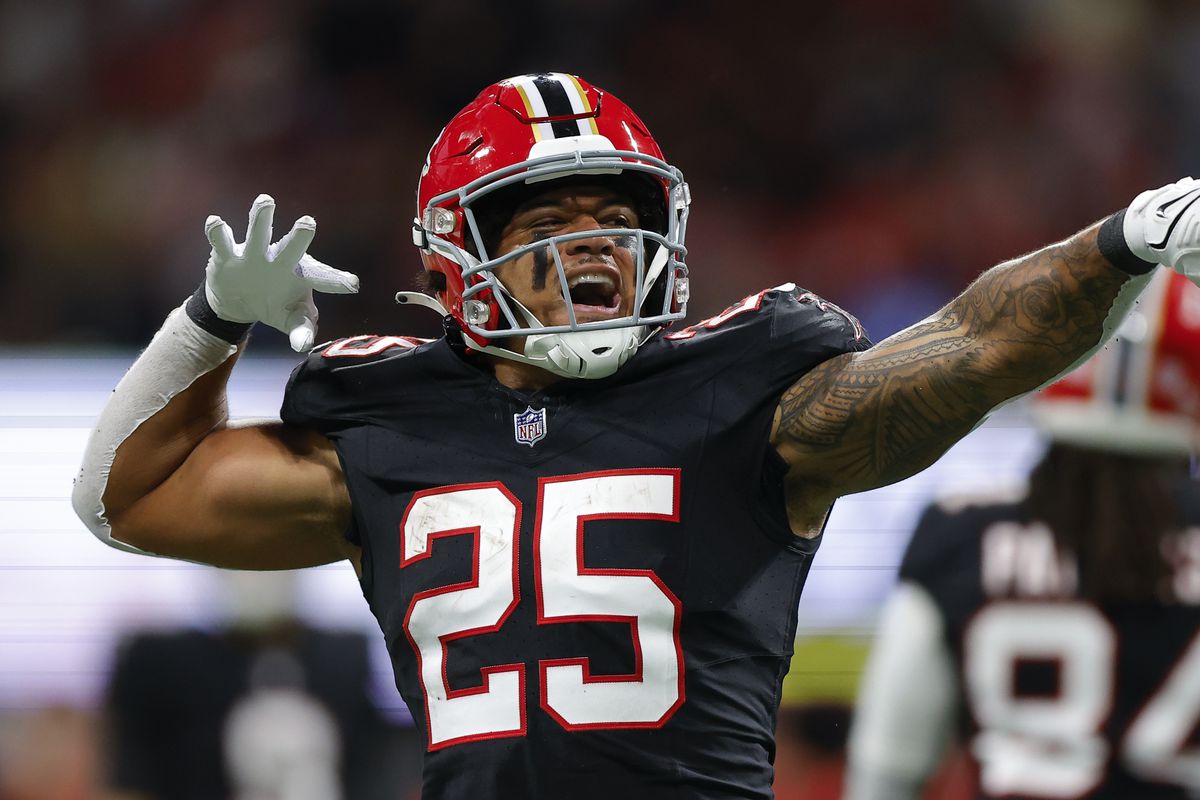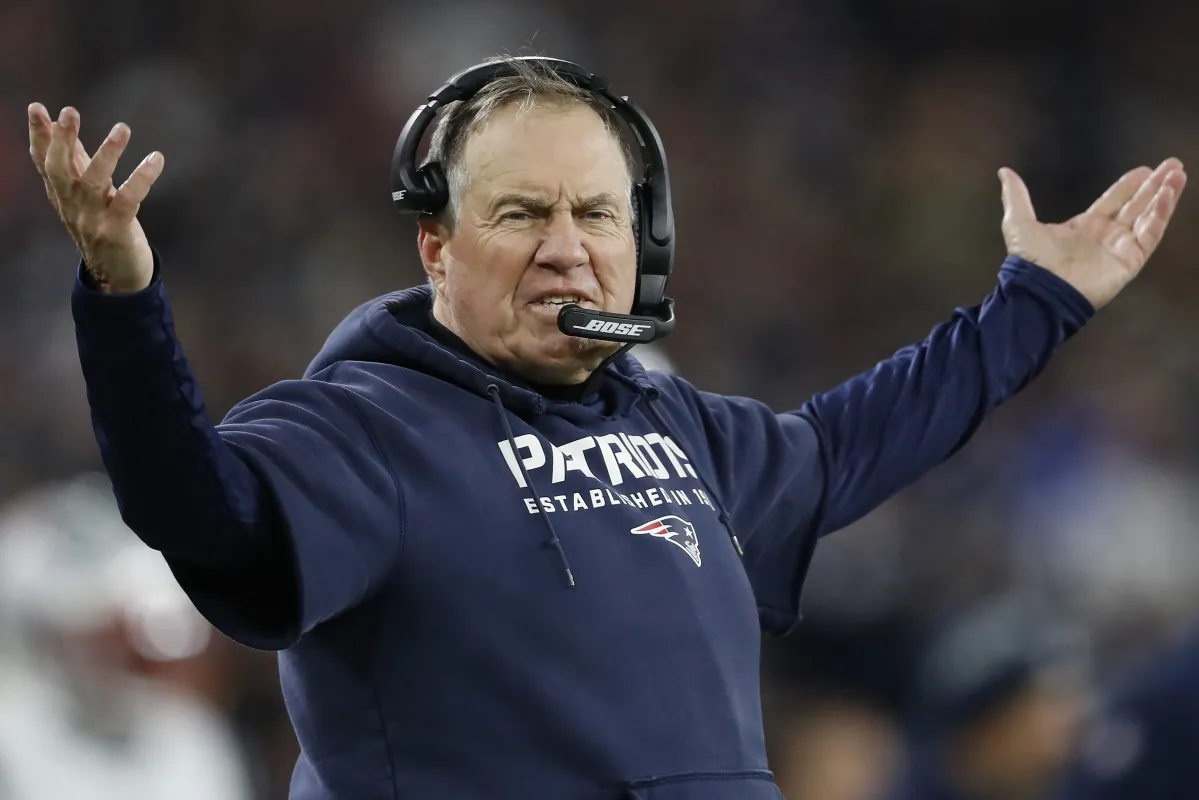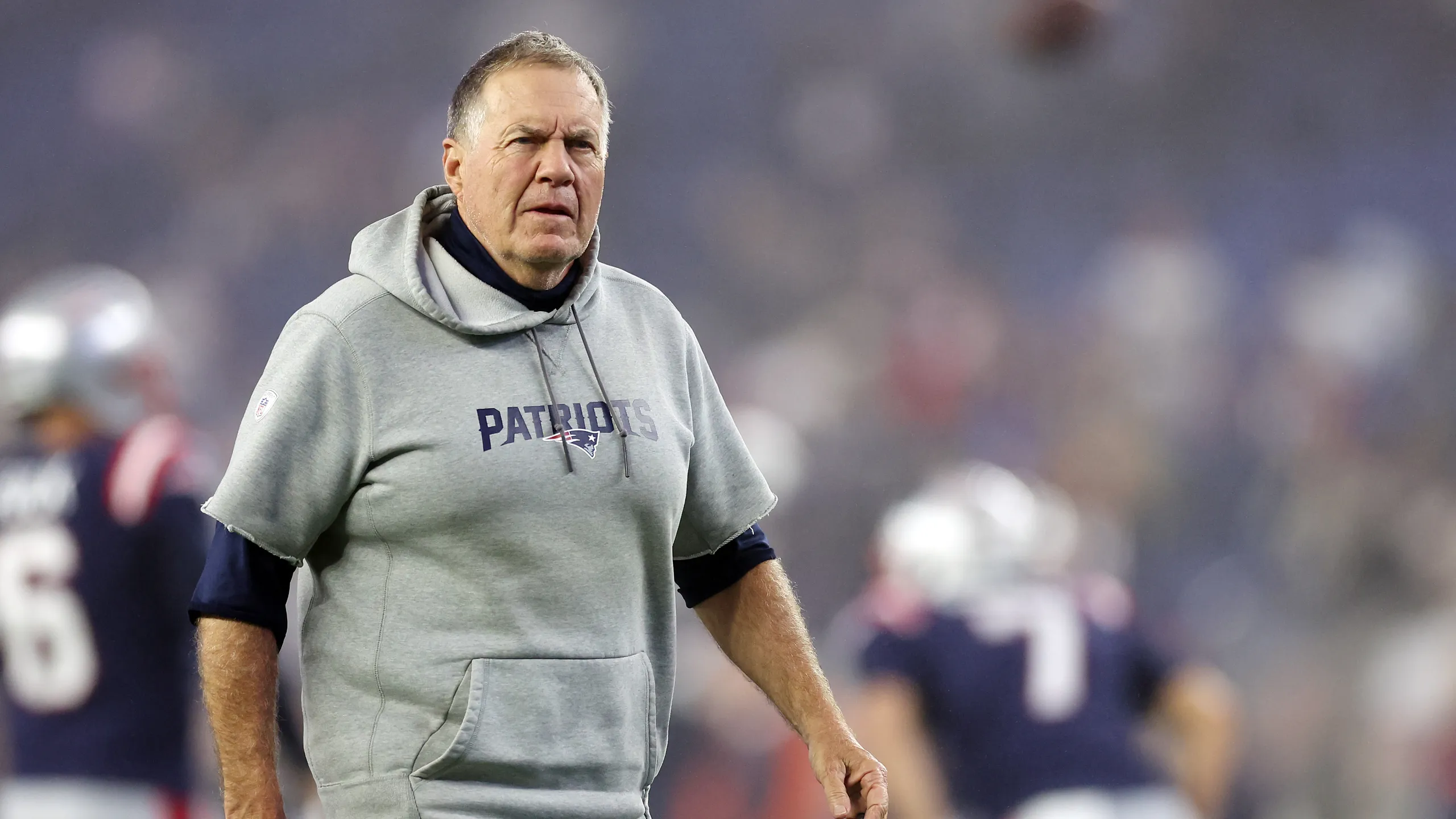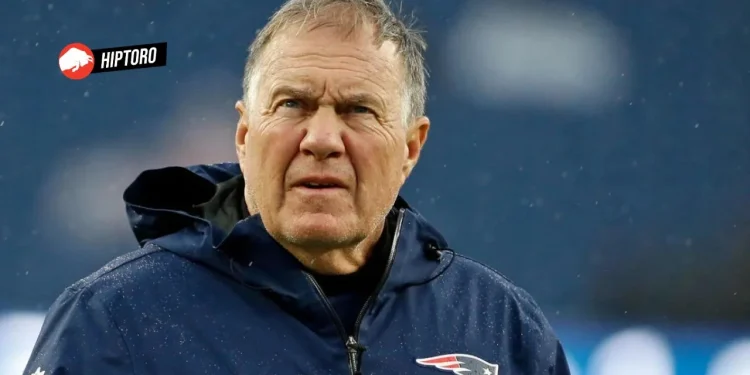Recently, the spotlight turned to a potential relationship between Belichick and the Atlanta Falcons—an alliance that never materialized but has sparked considerable debate across the sports community.

Bill Belichick-Blank Saga Trust and Tactics at Play
The intrigue began with a report from ESPN suggesting an interaction that might have pivotal implications for both the New England Patriots and the Atlanta Falcons. Patriots owner Robert Kraft allegedly offered some words of caution to Falcons owner Arthur Blank regarding Bill Belichick.
Kraft’s portrayal of Belichick as “aloof, arrogant, and prone to rubbing people the wrong way” was not just a personal observation but a strategic advisory. This advice hints at the complex inter-owner relationships and the behind-the-scenes strategies that often influence NFL team decisions.

Belichick’s reputation for being a hard-nosed, sometimes distant strategist is well-known. However, his prowess in the realm of football cannot be understated. It’s this dichotomy that perhaps led to Arthur Blank’s hesitancy. Despite initially considering Belichick for a significant role within the Falcons, Blank opted for Raheem Morris instead.
This decision underscores the balancing act team owners and executives must perform—weighing the benefits of a potential hire’s strategic acumen against their fit within the team’s culture and interpersonal dynamics.
A Critique of Culture Over Strategy
Adding a layer of complexity to the discussion is former NFL player Damien Woody’s reaction to the unfolding situation. During his appearance on the UNSPORTSMANLIKE Radio Show, Woody did not mince words.
He expressed astonishment at the Falcons’ prioritization of a “family-like and collaborative environment” over the raw tactical advantage a seasoned strategist like Belichick could offer.
Woody’s argument touches on a fundamental debate in sports management: should the immediate goal of winning supersede the long-term benefits of team cohesion and a supportive environment?
“Passing up the opportunity to enlist a football strategist of Belichick’s caliber due to interpersonal dynamics seems shortsighted,” Woody remarked. This statement not only highlights the often-underappreciated importance of leadership styles in sports but also underscores the risk of undervaluing proven expertise.
New Atlanta Falcons Quarterback Kirk Cousins will throw out the first pitch before the Braves game on Sunday. https://t.co/3gGE8MkJNB
— WSB-TV (@wsbtv) April 19, 2024
Bill Belichick Beyond Tom Brady
The narrative surrounding Belichick has undeniably shifted since Tom Brady departed from the Patriots. Once seen as an indomitable duo, Belichick’s solo endeavors have faced scrutiny.
His track record without Brady, including earlier coaching stints before his Patriots tenure, has not always aligned with his legendary status. This divergence raises questions about the efficacy of his approach in the absence of certain key players.

Recent seasons have further fueled this scrutiny, with criticisms focusing on Belichick’s talent scouting, player development, and in-game decision-making. These challenges are not just operational but deeply personal, affecting how he is perceived within NFL circles.
The willingness of NFL teams to engage with challenging personalities like Belichick seems to be waning, particularly if the promised results are in jeopardy.
A Game of Shadows and Success
The NFL is more than just a battleground for athletic prowess; it is a complex tapestry of relationships, reputations, and strategic gambits. The Falcons’ decision to steer clear of Bill Belichick, informed by Kraft’s insights and their cultural priorities, exemplifies the multifaceted nature of team management in professional sports.
While the immediate fallout of this decision remains to be seen, it serves as a compelling case study in the delicate art of balancing personality with performance in the pursuit of championship glory.
https://www.youtube.com/watch?v=ULkXMEG6uwc
Source: nflanalysis









